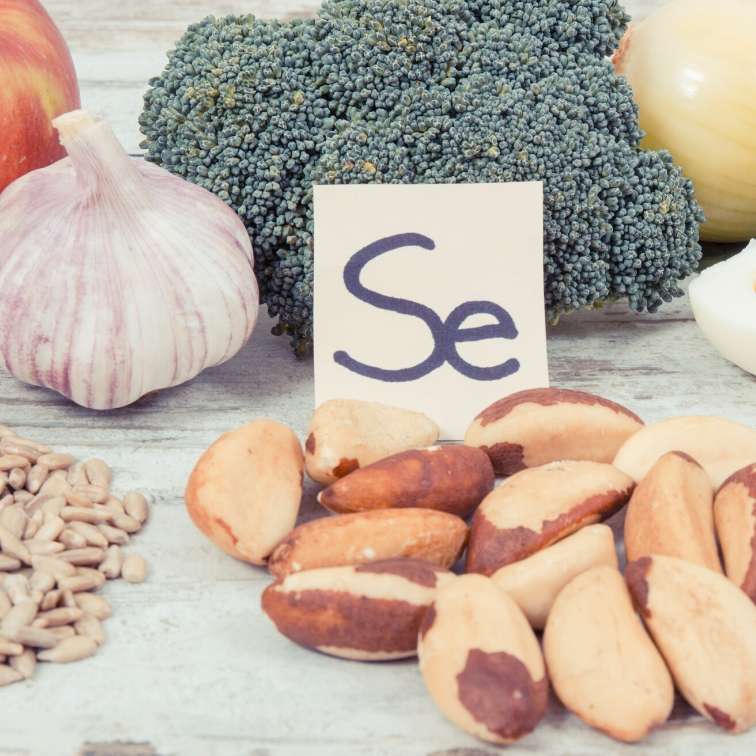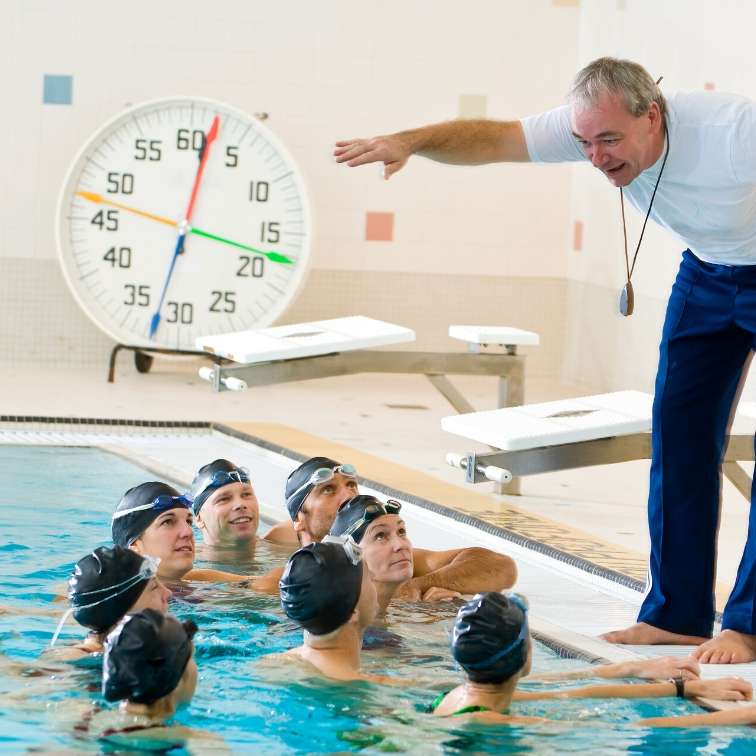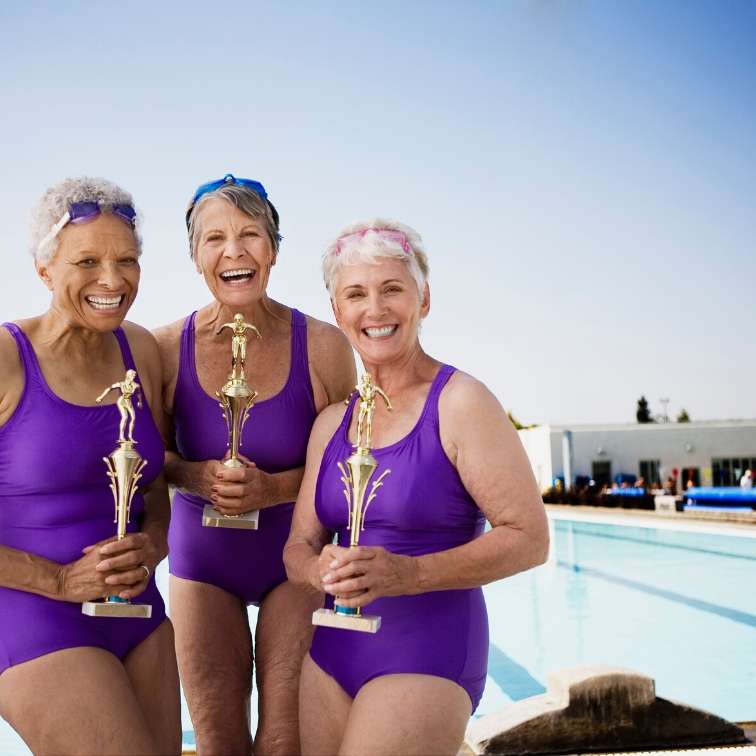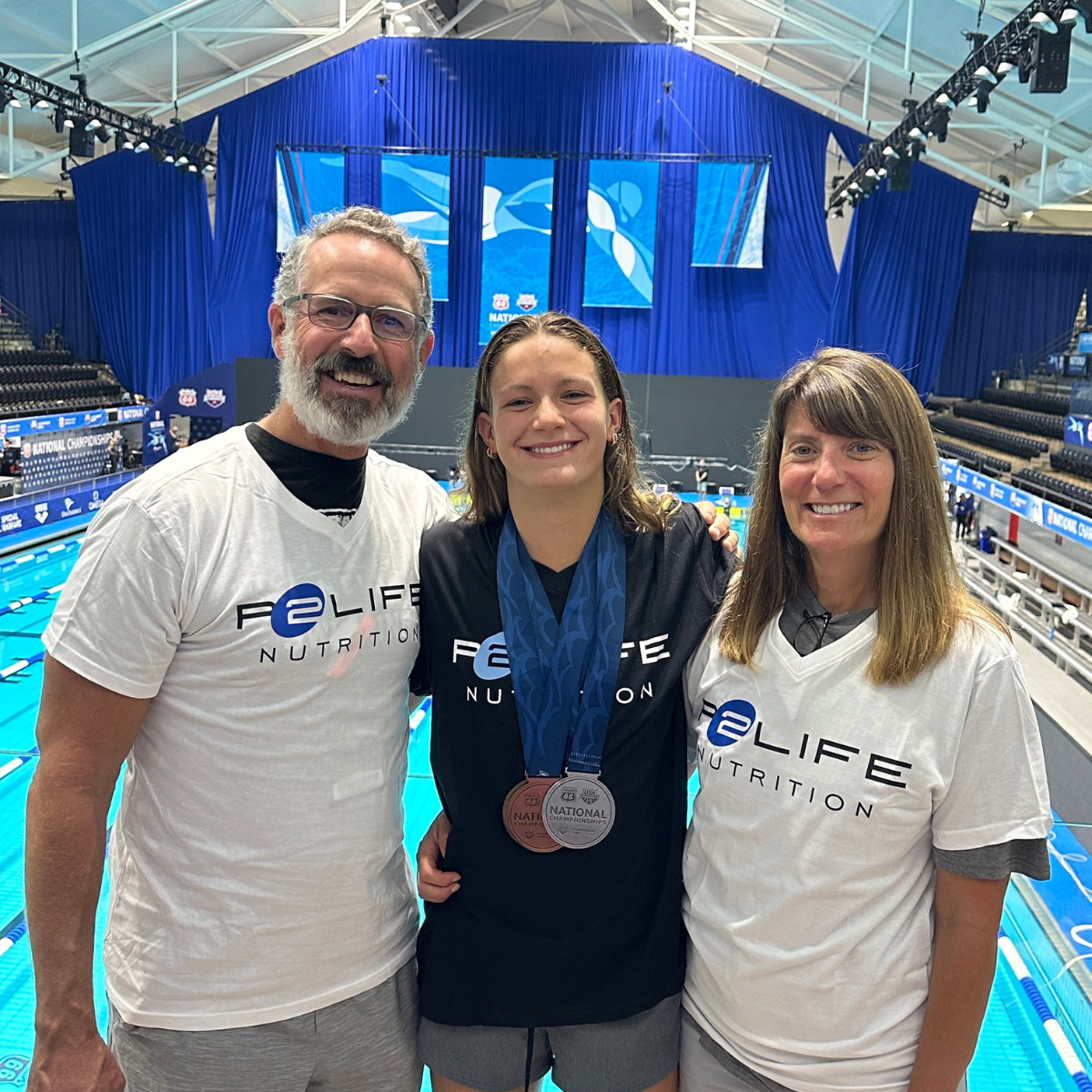
What Swimmers Should Know About Selenium
What separates good swimmers from great swimmers isn't just technique and time. It's nutrition. When you hear from the world's best swimmers about what they're eating and drinking, it's clear that they are paying attention to every detail to maximize their performance. Ideal nutrition for swimmers includes not only protein and carbohydrates but minerals and vitamins, too. One overlooked nutrient is selenium. Let's see what swimmers should know about this important mineral.

What does selenium do?
Selenium helps protect cells and cell membranes from oxidative stress. When an athlete is exercising, it is estimated that oxygen consumption increases 10-15 times more than for a sedentary person, and this long term exercise puts constant stress on the body. With its antioxidant properties, selenium guards the body against potentially damaging free radical production associated with intense physical activity and athletic training.
Additionally, selenium supports the proper activity of a group of enzymes called "glutathione peroxidases" that neutralize highly reactive and damaging free radicals.
There are eight known enzymes, and five of these require selenium to achieve proper function. These enzymes play a key role in the body's detoxification system and they also defend against oxidative stress.
How much do I need?
Since swimmers are putting their bodies through rigorous training and exercise, they must consistently replenish the following seven essential nutrients: calcium, iron, magnesium, potassium, selenium, sodium, and zinc. Although many swimmers are getting enough of these nutrients, depending on your diet, you may not be getting adequate selenium. "The most common vitamins and minerals found to be of concern in athletes' diets are calcium and vitamin D, the B vitamins, iron, zinc, magnesium, as well as some antioxidants such as vitamins C and E, β-carotene, and selenium."1
The recommended dietary allowance for adults and children over 14 is 55 micrograms. If you are an active swimmer, you will need more selenium to maintain proper levels so that your body isn't depleted of this key antioxidant. And while selenium intake is important, a "safe upper limit for selenium is 400 micrograms a day in adults."2
How can I get more selenium in my diet?
As with any diet plan, nutrition for swimmers should come from food sources. We've provided a list below of some top whole food sources for this important nutrient, and our NutriBoost shake provides 35% of your daily recommended value in one serving. Enjoy the shake after a swim to aid in muscle recovery, or before bed to repair and heal your body, while getting more selenium in your diet.
2 Brazil nuts -100 micrograms/200% DRV
4 ounces of tuna - 122 mcg/223% DRV
4 ounces of salmon - 43 mcg/78% DRV
1 cup asparagus - 10 mcg/20% DRV
1 cup brown rice - 19 mcg/35% DRV
1 egg - 15 mcg/28% DRV
Nutrition for swimmers doesn't have to be complicated. To learn more about how to achieve the right balance in your diet and maximize your performance in the pool, subscribe to our P2Life blog today.
Sources:
1. http://www.medscape.com/viewarticle/717046_8
2. http://www.webmd.com/a-to-z-guides/supplement-guide-selenium
3. http://www.ncbi.nlm.nih.gov/pubmed/15817998
4. http://www.whfoods.com/genpage.php?dbid=95&tname=nutrient










Leave a comment
This site is protected by hCaptcha and the hCaptcha Privacy Policy and Terms of Service apply.